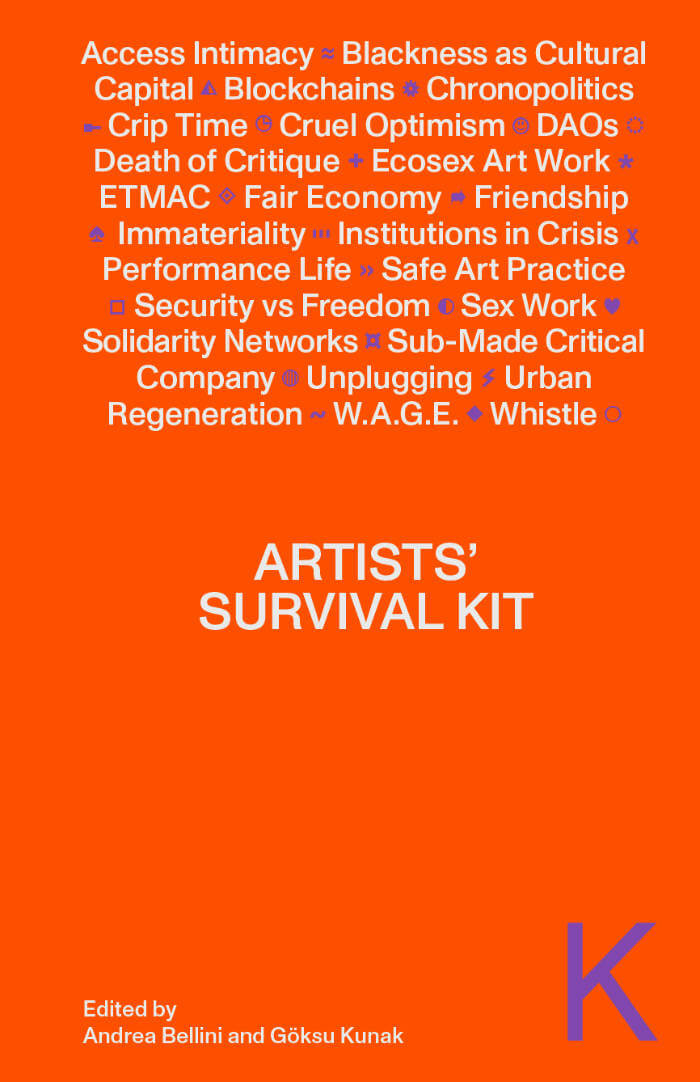Andrea Bellini
Andrea Bellini

Antonio Obá: Rituals of Care
Antonio Obá: Rituals of Care traces the practice of the Brazilian artist since 2016, offering a broad survey of his recent work, dwelling on the recurring motifs and iconographic sources that feed the complex imagery of his painting. Extensively illustrated, the book returns the richness of Obá's paintings, with enlargements on some of the details woven into the pictorial texture that, in addition to showing his masterful technique, make certain elements of his visual vocabulary stand out.
The conversation between Andrea Bellini and Antonio Obá that opens the book offers the opportunity to learn, through the artist's voice, about the key passages of his research, and to examine his diverse cultural references—from the Baroque of Minas Gerais to traditional Chinese painting, from Rembrandt to the Catholic ex-votos—until we discover the Obá's civic vocation, of painting as a spiritual practice.
The two essays commissioned for the occasion analyze the complexity of these layered signifiers. Lorraine Mendes's essay "Every Boy Is a King" offers an in-depth analysis of Obá's religious syncretism. It suggests an interpretation of its layered symbols, particularly the sankofa and the deity Exú, both of which pay tribute to the artist's West African roots. Above and beyond the specific cultural contexts of this iconography, the author emphasizes the universal value of Obá's work, its evocative, transformative, dynamic power, which—like music or dance—knows no national boundaries or barriers.
Larry Ossei-Mensah's essay "Embodiment: The Art of Antonio Obá" investigates the complex cultural legacy that is intertwined with the artist's practice, connected to his Afro-Brazilian roots, to the social and political realities of the Black diaspora, and to Christian, Candomblé, and Umbanda traditions. In addition to examining the context in which Obá's work is rooted, the author situates it within a galaxy of artists who have focused on questions of identity, often using their own bodies as tools of social and cultural critique.
Completing the book is a chronology, compiled by Sara De Chiara, tracing the artist's formative years and exhibition history, accompanied by rich documentary materials.
Published on the occasion of Antonio Obá: Rituals of Care, the first mid-career survey in Europe dedicated to the Brazilian artist, curated by Andrea Bellini, at the Centre d'Art Contemporain Genève, in 2025.
Antonio Obá (born 1983 in Ceilândia, Brazil) lives and works in Brasília. His multifaceted practice encompasses painting, sculpture, photography, installation, video, and performance. His œuvre interrogates and subverts historical representations, reappropriating spiritual practices and stigmas of racism. Obá endeavors to reclaim his African heritage in a societal framework that has historically sought to dilute Black culture. His works therefore confront the violence inflicted over centuries upon African-Brazilian traditions and communities with new narratives.

Artists' Survival Kit
A collection of essays and a critical attempt to rethink and improve the relationship between artists and art institutions and to give visibility to the precarious, complex, and very often existential reality of the art workers.
"Beneath the glamorous surface of the art world—the openings and dinner parties, the record-breaking auction prices, the media attention—lies a reality that is precarious, complex, and very often existential: only a tiny minority of artists support themselves with their work and fewer still manage to do so throughout their lives. This book tells those other stories, for example of artistic practices grounded in performance, research, and political activism. These practices are not necessarily oriented toward producing marketable objects. Thousands of artists around the world, at all latitudes, struggle every day under precarious work conditions, in the absence of shared rules, and with a debilitating sense of insecurity caused not only by the threat of global pandemics but also by war and political oppression, resurgent nuclear threat, competition for dwindling resources, and perhaps most pressing of all, the climate crisis.The economic challenge of supporting oneself as an artist immediately turns into an ethical one." — Andrea Bellini
And more

Poems I Will Never Release, 2007-2017
First retrospective monograph: an essential resource for any in-depth critical study of Chiara Fumai's work and thought, including a first systematic analysis of her oeuvre.
This book is dedicated to the complex artistic trajectory of Chiara Fumai, who played a significant role in the development of performance and feminist aesthetics in the twenty-first century and who died prematurely in 2017, at the age of only thirty-nine. Conceived as a critical monograph on Fumai's work as a visual artist, performer, DJ and music curator, Poems I Will Never Release is the first volume to trace the entirety of her artistic path: from her scathing video performances and large-scale installations, to her more intimist practices of automatic writing and collage and her incursions into music.
Almost 500 pages long, the volume is divided into three main chapters. The first of these brings together essays by prominent writers, curators and artists who examine Chiara Fumai's work from various perspectives, highlighting its intersections with anarchism, feminism, ideological forms and discourses of power and oppression, the animal rights movement, theater, surrealism and esotericism. The second chapter presents an imposing iconographic apparatus that documents Chiara Fumai's entire artistic production, from 2007 to 2017, while the third offers an exhaustively detailed chronology and bibliography.
The book collects essays by Irene Aristizábal, Andrea Bellini, Federico Campagna, Milovan Farronato, Francesco Urbano Ragazzi, Mara Montanaro, Chus Martínez, Paulina Olowska and Giovanna Zapperi, as well as conversations between Raimundas Malašauskas and Gabriel Lester, and Cristiana Perrella and Marcello Bellan. The chronology and bibliography are edited by Sara de Chiara.